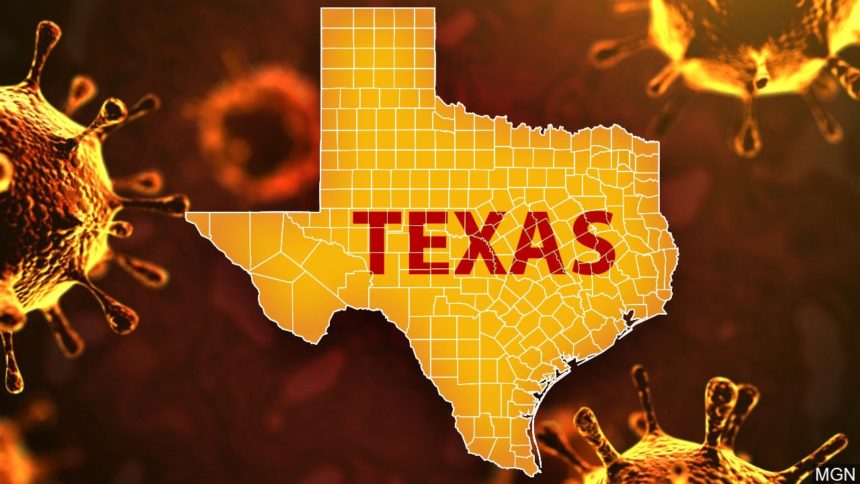New study predicts rapid surge in Texas virus cases, finds hot weather won’t stop it

PHILADELPHIA, Pennsylvania -- Heading into the Memorial Day weekend, a study predicts some Southern U.S. locations are poised for sharp upticks in new Covid-19 cases.
Populous areas of Texas, parts of Alabama and Tennessee, and the Miami area of Florida, will see rapid surges in new Covid-19 cases, according to a new outbreak predictions model.
Texas has reported nearly 53,500 cases of Covid-19 with 1,480 deaths to date. The state reported 1,181 new cases and 40 new deaths on Friday.
Gov. Greg Abbott has noted increased testing in Texas, a rate of infection that has steadily hovered around 5 percent, and available hospital space as reasons for steadily rolling back restrictions. That has led some to question whether it is happening too fast, while some business leaders say it’s not quick enough.
Many states across the country can ease some restrictions safely, but spikes in areas that have reopened too early are expected, according to the model put together by a team at the Children's Hospital of Philadelphia and the University of Pennsylvania.
States that have lifted restrictions slowly and selectively might escape immediate resurgences, the model predicts.
The model also shows that states cannot count on summer weather to reduce transmission.
"While our models show that rising temperatures are having an impact on reducing the spread of Covid-19, those hot days of summer are not going to eliminate the threat of virus resurgence," said PolicyLab's Dr. Gregory Tasian, senior scholar in the Center for Clinical Epidemiology and Biostatistics at the University of Pennsylvania's Perelman School of Medicine.
"The areas of the south that our models project have a high risk of resurgence in the next few weeks may already be approaching their average summertime temperatures," Tasian added.
"Therefore, their risk for seeing increasing case counts rests solely on how cautiously they reopen communities and manage crowding," he explained.
Dr. Jeanne Marrazzo, director of the division of infectious diseases at the University of Alabama at Birmingham said the holiday weekend and loosened restrictions could cause the virus to "go like a prairie fire … It is now really having the potential to get out of control."
Social distancing and masks "really work," she said. "If everybody did that, we wouldn't need to worry about arguing about these restrictions."

